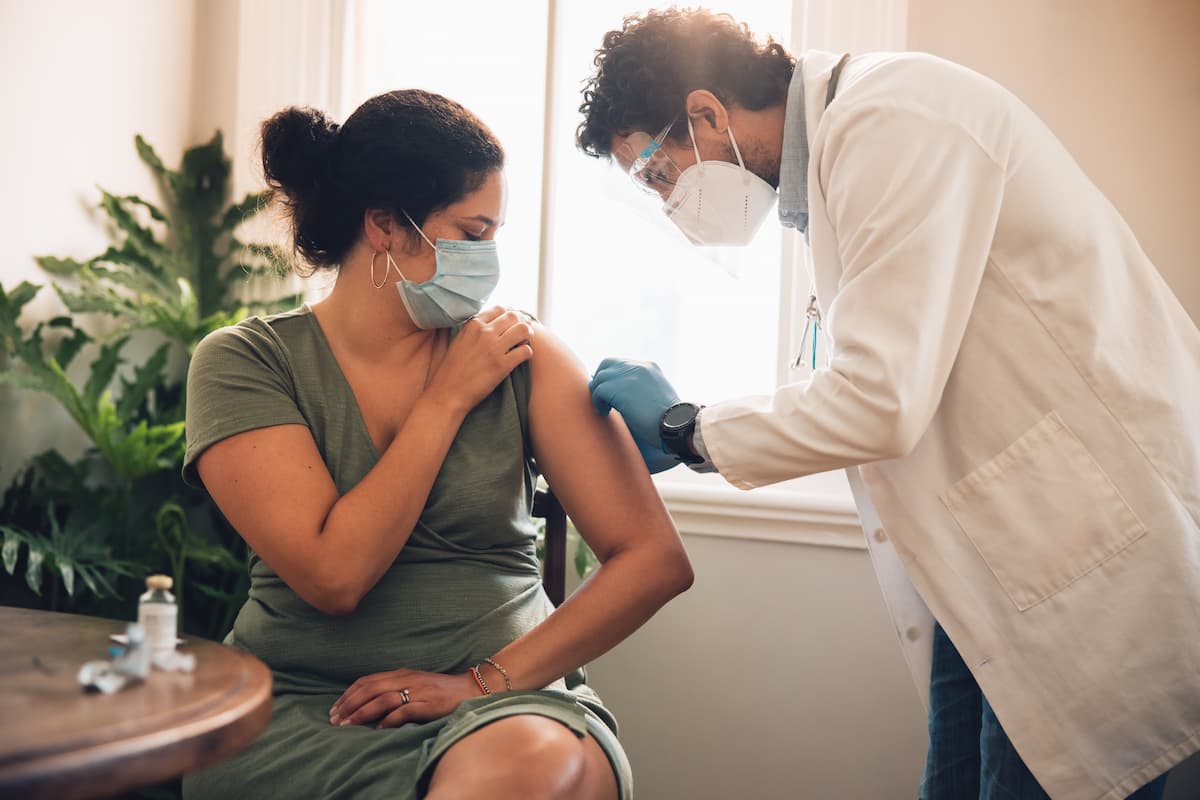About the Trial
Trial Name: A Study of Nipocalimab Administered to Adults With Generalized Myasthenia Gravis
ClinicalTrials.gov ID: NCT04951622
Sponsor: Janssen Research & Development, LLC
Completion Date: April 17, 2026
News
Article
Author(s):
If approved, nipocalimab can treat antibody positive individuals with generalized myasthenia gravis.
Image credit: Andrii | stock.adobe.com

Trial Name: A Study of Nipocalimab Administered to Adults With Generalized Myasthenia Gravis
ClinicalTrials.gov ID: NCT04951622
Sponsor: Janssen Research & Development, LLC
Completion Date: April 17, 2026
The biologics license application (BLA) for nipocalimab (Johnson & Johnson) has received a priority review designation from the FDA for the treatment of antibody positive (anti-acetylcholine receptor [AChR], anti-muscle-specific tyrosine kinase [MuSK], anti-lipoprotein-related protein 4 [LRP4]) patients with generalized myasthenia gravis (gMG).1 The action follows positive findings from the phase 3 Vivacity-MG3 study (NCT04951622).1,2
MG is an autoantibody disease in which the immune system mistakenly makes antibodies (eg, AChR, anti-MuSK, or anti-LRP4), which target proteins at the neuromuscular junction and can block or disrupt normal signaling from nerves to muscles, thus impairing or preventing muscle contraction. The disease impacts an estimated 700,000 people worldwide, and approximately 10% to 15% of new cases of MG are diagnosed in adolescents aged 12 to 17 years. Among juvenile cases, girls are affected more often than boys with over 65% of pediatric MG cases in the US diagnosed in girls.1
Further, initial disease manifestations are often ocular; however, in approximately 85% or more cases, the disease generalizes (gMG) and skeletal muscles weaken, which causes symptoms such as limb weakness, drooping eyelids, double vision and difficulties with chewing, swallowing, speech, and breathing. Pediatric patients are considered vulnerable populations, but they have limited therapeutic options.1
Nipocalimab is an investigational monoclonal antibody that is designed to bind with high affinity to block the neonatal Fc receptor (FcRn) and reduce levels of circulating immunoglobulin G (IgG) antibodies potentially without impacting other immune functions, such as autoantibodies and alloantibodies that underlie multiple conditions. Additionally, nipocalimab was granted a fast track designation for gMG in December 2021, an orphan drug designation for in February 2021, and had a BLA submitted for FDA approval in August 2024.1,3
Vivacity-MG3 (NCT04951622) is a multicenter, randomized, double-blind, placebo-controlled phase 3 study that evaluated the efficacy, safety, pharmacokinetics, and pharmacodynamics of nipocalimab compared with placebo in the treatment of gMG. Adult patients 18 years and older with antibody positive or negative gMG with insufficient response to ongoing standard of care were enrolled. During screening, patients eligble for enrollment had MG-Activities of Daily Living (MG-ADL) scores greater than or equal to 6 as well as a Myasthenia Gravis Foundation of America (MGFA) Class of IIa/b–IVa/b.1-4
The study included a screening phase (up to 4 weeks), a treatment phase (24 weeks), an extension phase (up to 2 years), and a follow-up safety visit (up to 8 weeks following the final infusion). After screening, patients received either nipocalimab (n = 77) or placebo (n = 76) intravenously once every 2 weeks for up to 24 weeks. All patients received a 30 mg/kg intravenous loading dose followed by a 15 mg/kg dose every 2 weeks.1-4
The study’s primary end point was mean change in MG-ADL score from baseline over weeks 22 through 24 in antibody positive patients. Additionally, secondary end points included safety and tolerability outcomes, such as frequency of adverse events (AEs).1-3
In the study, nipocalimab plus standard of care demonstrated a significantly greater reduction in MG-ADL response (≥2-point improvement from baseline) compared with placebo plus standard of care (p = .0213). For a patient with gMG, a 1- to 2-point change on MG-ADL can show significant changes in the day-to-day lives of patients, experts noted.1
According to results of Vivacity-MG (NCT03772587), a prior randomized, placebo-controlled, phase 2 study that evaluated nipocalimab and placebo in 68 patients with gMG, similar incidences of treatment-emergent AEs were observed between the nipocalimab (83.3%) and placebo groups (78.6%). Additionally, infections were present in approximately 33.3% and 21.4% of patients, respectively. Further, no deaths or discontinuations because of treatment-emergent AEs were observed during the study period.3,4
“We are committed to working closely with the FDA to help bring nipocalimab as a potential treatment to certain patients living with gMG,” Katie Abouzahr, MD, vice president, Autoantibody Portfolio and Maternal Fetal Immunology Disease Area Leader at Johnson & Johnson Innovative Medicine said in a news release. “If approved, nipocalimab has the potential to treat gMG in antibody positive individuals, including anti-AChR, anti-MuSK, and/or anti-LRP4.”1
REFERENCES
Stay informed on drug updates, treatment guidelines, and pharmacy practice trends—subscribe to Pharmacy Times for weekly clinical insights.

FDA Grants Full Approval to mRNA-1273 COVID-19 Vaccine in Children at Increased Risk

Donanemab-Azbt Receives FDA Label Update With New Dosing for Alzheimer Disease